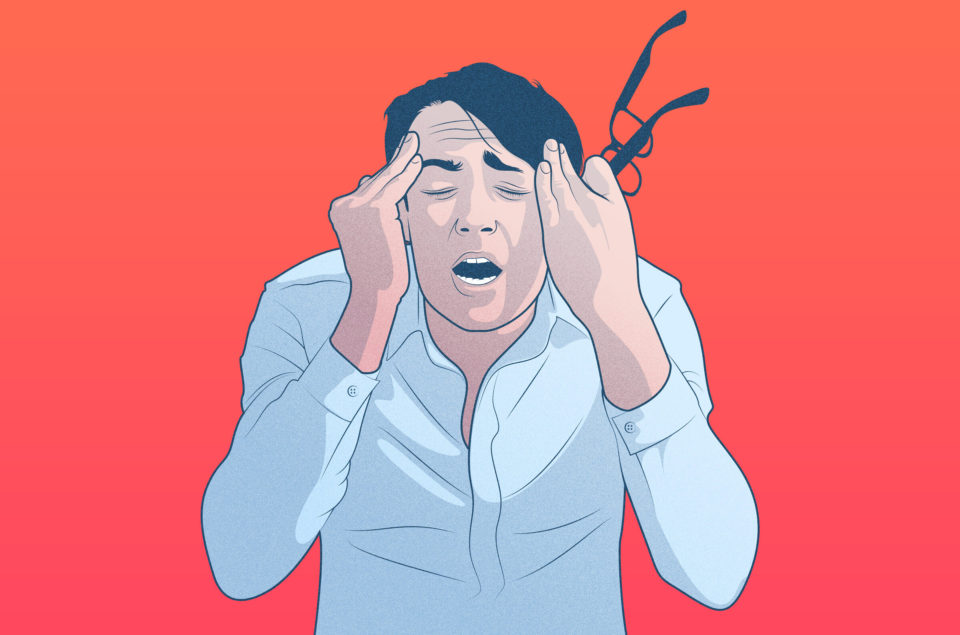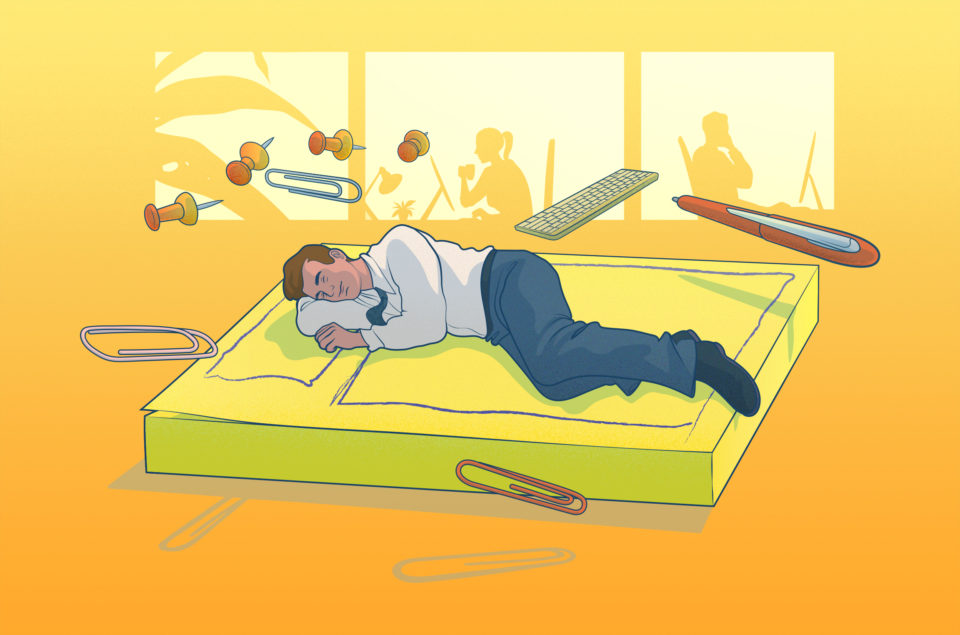Sleep loss has a profound impact on human behavior, ranging from detrimental effects on basic psychomotor skills to more complex cognitive functions. One key area that research shows is affected by poor sleep is your decision-making ability as well as a tendency toward less social behavior.
Sleep is simply of paramount importance both to how sharp and creative we feel and also how we make people feel around us. Yet, the impact sleep has on leadership and the organization they’re tasked to lead, often gets overlooked.
We take a closer look at the link between sleep and effective leadership and how sleep can improve leaders and their leadership style, creating a positive impact for their team and company as a result.
The business case for sleep leadership
Most businesses and leaders are likely to be aligned on the fact that employee health and welfare should be a business priority, yet sleep leadership rarely figures into this equation. In a clinical review, conducted by C.M Barnes and N.F Watson, a strong argument for sleep’s value in effective leadership is put forward.
Collecting research from several different studies, it examines how ineffective leadership caused by sleep deprivation can harm workgroups and subordinates’ performance. For example, a study that looked at 88 leaders from a spectrum of industries showed that abusive supervision increased after a night of poor sleep, but when the same leader got high-quality sleep, the abusive supervision ranked low.
It’s naturally a two-way street, if sleep is not valued across an organization and leaders aren’t sleeping well, most likely subordinates and colleagues will not value optimal sleep habits either. Poor sleep within workergroups can therefore lead to hostility up the chain of command as well. Eventually leading to decreased motivation to perform well at work and impaired loyalty toward the company and organization as a result.
The impact of sleep-improved leadership
A study where researchers examined participants in an online program for cognitive behavioral therapy found that those who experienced improved sleep also then reported:
- More self-control
- Better mood
- Higher job satisfaction
- Helpfulness towards colleagues.
Leaders who have prioritized sleep health and who lead with a ‘sleep leadership’ attitude can often see a positive ripple effect across their workgroups and organizations.
The consequences of sleep-impaired leadership
- Decision making – sleep loss reduces cerebral metabolism in the prefrontal cortex – this is the region of the brain responsible for cognitive processes, such as judgment and decision making – further strengthening the argument of why leaders and decision makers should prioritize sleep.
- Increased risk-taking – there’s a propensity for taking more risks when you’re sleep deprived. The effect can be seen when undertaking tasks such as driving, but also for example becoming desensitized to monetary risk. A sleep study showed how participants who were sleep deprived changed their decisions and were inclined to opt for more monetary risk.
- Mood & memory – a study looking at the effect of one night’s sleep loss in subjects saw significant increases on both hostility and anxiety scales as well as heightened tension, confusion and fatigue.
- Team effectiveness & performance – as creativity and complex thinking are stifled with sleep loss, the team’s effectiveness and thus performance suffers and can in the long run compromise the company.
- Less inspirational and motivational – leaders who are sleep deprived will have a more difficult time to inspire their workforce and bring out the best from their colleagues and subordinates.
- Family & work-life imbalance – workgroups who feel sleep is less regarded at the workplace, and putting in hours is what’s expected, will most likely find it difficult to detach from work during their free time and at night time as well. The anxiety or insomnia caused from this, can further exacerbate the low quality sleep workers may already be experiencing.
- Circadian rhythm disruption across workgroups – The circadian system contributes to health and disease. An out of sync body clock in leaders and workgroups will in the long term likely reflect in absenteeism and increased sick leave.
The sleep habits of successful leaders
Although Apple CEO, Tim Cook, is known to rise early (sometimes as early as 3.45 a.m) and Elon Musk may claim to cope on as little as 6 hours or less of sleep, they are more likely the exception rather than the rule.
There’s simply an overwhelming amount of research on the benefits of sleep to our wellbeing and how it promotes better leadership. We list a few inspirational leaders from a spectrum of industries. Apart from their impressive track record in their respective fields, what they all have in common is the value they place on a good night’s sleep.
- Bill Gates – Gates has confessed that earlier in his career he felt ‘sleeping a lot was lazy’. Thankfully, not only has Gates had a change of heart since, but is now a vocal supporter of the value of getting a good night’s sleep and professes that he finds it difficult to think creatively when he’s sleep deprived.
- Ariana Huffington – Huffington, the founder of Huffington Post is synonymous with speaking out on the importance of incorporating a healthier work environment for staff. Her staffs’ office space includes nap rooms and Huffington herself has a strict sleep routine which includes banishing all devices from the bedroom.
- Jennifer Lopez – Sleep may be the last thing you’d associate with J-Lo’s energetic, multi-talented persona, however she’s a strong advocate for sleep. An anxiety attack in her 20s caused by an erratic sleep and work schedule, led her to prioritize sleep. Today she calls sleep her greatest beauty secret.
- Jeff Bezos – One of the world’s richest men, doesn’t skimp on sleep either. He tries to prioritize at least 8 hours of sleep every night. He goes as far as to say that the extra hours of work you may gain, to the detriment of sleep, is only an illusion, as productivity wanes with less sleep.
- Satya Nadella – the CEO of Microsoft joins Bezos in clocking in at least 8 hours of sleep each night, making it his key health priority.
Practical tips for sleep leadership
So how do you go about transforming your workplace to a sleep-friendly environment? Here are a few practical suggestions that can encourage leaders and colleagues to embrace better sleep habits.
- Schedules that work – Use staff reviews to understand their circadian rhythm and sleep chronotype. Would they benefit from an adjusted or flexible work schedule? A company can gain employee motivation, creativity and loyalty in return for tweaking work hours.
- Cut off times for emails and meetings – There may be a set number of hours of input required in the working week, however emails and meetings can perhaps be set within certain fixed times, such as 9 am – 4 pm to accommodate for late and early chronotypes.
- Self-examination on company sleep culture – Create open forums for discussing health and particularly sleep health at work. Do colleagues speak of ‘pulling all-nighters’? Address the difficult questions on whether there’s a perception that work hours and late nights are linked to work ethic and career success? Steer the attitude and conversation to the value of rest and recuperation, which ultimately will do more for the company’s bottom line.
- Reward scheme for sleeping & exercising – many insurance companies are now adopting a reward scheme for people who incorporate exercise into their weekly routine. Look into the possibility of similar schemes for sleep.
- Attention to hybrid & shift-workers – pay attention to the needs of shift-workers or hybrid workers at your company. Shift-workers are a group that is susceptible to sleep-related disorders, so accommodating schedules that can work, and incorporating plenty of rest and recuperation is key to their health. Hybrid workers face a different, but nevertheless, challenging scenario where work blends into every aspect of free time. Staff who work from home can perhaps be encouraged to start and end the day with a certain ritual, such as a walk outside or a relaxation exercise to signal to the brain that it’s now the end of the working day.
Perhaps take a leaf out of Mark Bertolini, CEO of Aetna, whose attitude toward sleep is truly inspirational. He is so convinced of the power of sleep and its impact on productivity, that he rewards staff who sleep with 500USD. Aetna uses various trackers to help their staff track their sleep.
For far too long an accepted cultural norm in the workplace has been to cope on little sleep. The idea of ‘just making do’ on a few hours’ sleep, has begun to be questioned – with good reason – as more leaders and their colleagues are opening their eyes to how sleep can improve not only their own leadership, but also the performance of their team members and in the end, the fortunes of the company.
Are you ready to take the next step into a better sleep leadership that has a positive impact across your team and organization? Look into our sleep program for companies “Sleep Cycle’s Boot camp for companies“.










